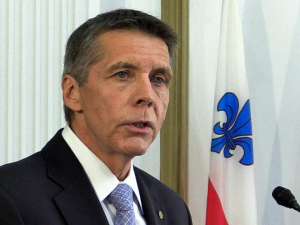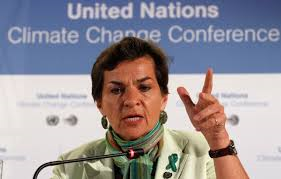“Reducing our consumption of fossil fuels will not make bad weather and extreme natural events go away.” – Pierre Desrochers, author and academic
Faithful readers of this blog know my position on climate change. Yes, it is taking place; it’s cyclical. And, yes, we have experienced a very slight warming, but we cannot do anything to change that trend.

University of Toronto professor Pierre Desrochers compares climate change extremists to Malthusians. (montrealgazette.com)
In an interesting writing by University of Toronto associate professor of geography Pierre Desrochers, recently excerpted in the Wall Street Journal’s regular Notable & Quotable column, I found his observation of those who believed that the means of human subsistence (Malthusians) were so similar to climate change dooms day catastrophists.
Thomas Robert Malthus (1766-1834) argued that human population would increase to the maximum extent permitted by human fertility, that the means of subsistence wouldn’t keep up, and that the unavoidable result would be poverty, starvation, war, diseases and population crashes.

Christina Figueres has called for population control in her fight to control climate. (thesleuthjournal.com)
Malthusians have latched onto climate change. “We should make every effort to reduce the world’s population in an effort to fight climate change; that obviously fewer people would exert less pressure on the natural resources; and that humanity is already exceeding the planet’s planetary carrying capacity today,” Christiana Figures, executive secretary of the UN’s Framework Convention on Climate Change, said earlier this year.
In Desrochers’ piece, he reminds us of philosopher Georg W. F. Hegel’s alleged observation that “If theory and facts disagree, so much the worse for the facts, “ relating it to today’s climate concerns that always trump the real benefits of fossil fuel use.
“This is especially true in current discussions of humanity’s increased consumption of coal, petroleum and natural gas over the past two centuries,” he writes as the greenhouse gas scare of environmentalists trumps “the development of large-scale, reliable and affordable long-distance transportation, which in turn paved the way to better and more affordable nutrition by concentrating food production in the most suitable locations.”
Further, he reminds us that cars, trucks and tractors replaced the need for work animals, and their food consumption; and that kerosene, heavy oil and natural gas displaced poor quality biomass fuels such as firewood and dung, which filled homes with soot, particles, carbon monoxide and toxic chemicals.
Desrochers tells of plants that benefit from increased carbon-dioxide, and that “nature in the form of forests and increased wildlife, has made a significant comeback in advanced economies.”
To support his writing, last month Nature researchers revealed there are three trillion trees on the planet, way more than scientists estimated.
The charge that the use of fossil fuels over time will kill billions of us, writes Durochers, is lost on eco-warriors. They fail to understand that while there were barely one billion human beings around when fossil fuel use took off and the very notion that billions of us might die with its consumption doesn’t compute.
Just as I have stipulated in previous posts to this blog, Desrochers reiterates, “Reducing our consumption of fossil fuels will not make bad weather and extreme natural events go away.”
In conclusion, here’s how President Obama responded when questioned regarding his leadership by Steve Kroft on CBS’ 60- minutes last weekend: “My definition of leadership would be leading on climate change.”





